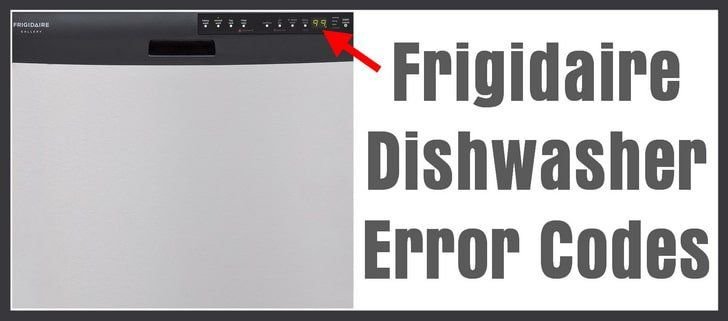
An error code on your dishwasher is like a cryptic message telling you something isn’t quite right under the hood. The E2 error code on a Frigidaire dishwasher usually indicates an issue with the unit’s water heating system. It’s like when you’re trying to get a hot shower but the water heater isn’t cooperating — frustrating, right? This code generally means that the dishwasher isn’t heating the water properly, which could lead to your dishes not getting cleaned effectively.
Understanding the E2 Error Code
The E2 error code can feel like a foreign language if you’re not familiar with dishwasher mechanics. Think of it like your dishwasher’s way of waving a tiny white flag to get your attention. Essentially, it means there’s a problem with the heating element. This component is crucial because it heats the water to the right temperature to clean and sanitize your dishes. Without it, your dishwasher is like a car engine with no fuel — it just can’t do its job right.
Water in dishwashers needs to reach a certain temperature to effectively break down food residues and kill bacteria. If your Frigidaire dishwasher is showing the E2 error code, it implies that the water isn’t heating up as it should. This could be due to a faulty heating element, or it might be that the thermostat isn’t doing its job. Whatever the cause, it’s important to address it to ensure your dishes are both clean and germ-free.
Now, you might wonder, is it safe to keep using your dishwasher? Technically, your dishes are still getting rinsed, but without hot water, they’re not being cleaned to the best standard. This is similar to washing your clothes in cold water when they really need a hot cycle. So, while it’s not immediately dangerous, using the dishwasher with this error could mean you’re not effectively sanitizing your dishes.
Causes and Effects of the E2 Error Code
So, why does this error happen in the first place? Picture the heating element as the heart of your dishwasher’s cleaning process. If it’s not working, the whole system suffers. Common causes for the E2 error code include a burnt-out heating element, which happens naturally over time, much like a light bulb burning out. Another culprit could be a malfunctioning thermostat that can’t accurately measure the water temperature.
The effects of not addressing an E2 error can gradually pile up. Your dishes might start coming out less clean, leaving you with grimy glasses and sticky plates — definitely not what you signed up for! Continuously running the dishwasher without hot water also means you aren’t killing off all bacteria and germs, which could pose health risks for you and your family.
What should you do when faced with this error code? The best course of action is to inspect the heating element and thermostat. For beginners, this might sound daunting, but it’s often something a professional can handle quickly and efficiently. Replacing a faulty component can restore your dishwasher’s performance and ensure that your dishes are both sparkly and safe.
What You Can Do About It
If you find yourself in this situation, don’t worry — you’ve got options. First, check the manual for any troubleshooting tips that are specific to your model. Sometimes resetting the dishwasher can temporarily clear the error, much like rebooting a computer to resolve a glitch. But remember, this might not fix the underlying issue.
If the problem persists, it might be time to call in a professional. Think of it like calling a plumber when your pipes are acting up. An expert can diagnose and suggest the best fix, whether it’s replacing a part or making adjustments. While there might be a cost involved, it ensures your dishwasher is running safely and efficiently — an investment in peace of mind.
To avoid future headaches, regular maintenance is key. Just like you’d take your car for a tune-up, your dishwasher needs some TLC too. Check for any signs of wear and tear, and keep the machine clean to prevent build-up that might affect performance. By taking these steps, you can extend the life of your appliance and keep those pesky error codes at bay.
In conclusion, while it’s generally not dangerous to use your Frigidaire dishwasher with an E2 error code, it’s not ideal either. Addressing the issue sooner rather than later ensures your dishes are thoroughly cleaned and your appliance stays in good working order for years to come.